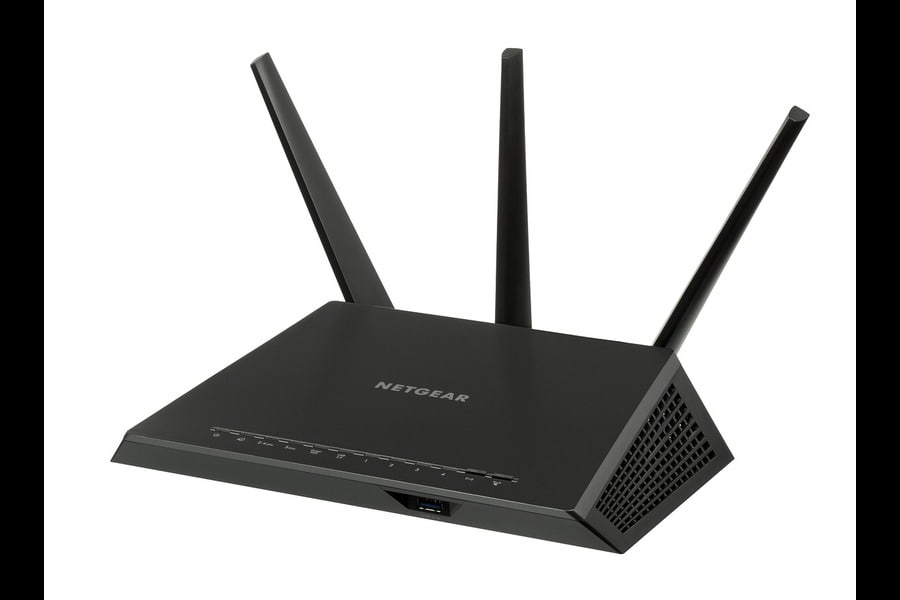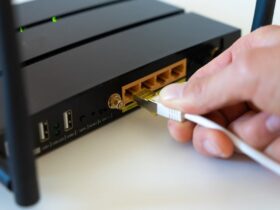In the ever-evolving landscape of networking technology, questions about the functionality and compatibility of devices often arise. One such common inquiry revolves around the relationship between routers and modems: Can a router operate effectively without the presence of a modem? In this blog post, we delve into this intriguing topic to provide clarity and insight. By understanding the roles of routers and modems within a network infrastructure, we aim to shed light on whether a router can indeed function independently without a modem. Join us as we unravel the complexities of networking technology and explore the possibilities of network setups without traditional modem-router configurations.
Understanding The Difference Between Routers And Modems
To fully grasp the intricacies of network architecture, it is imperative to comprehend the distinct functionalities of routers and modems. These devices play crucial roles in establishing and maintaining network connectivity, each serving a specific purpose within the infrastructure.
Routers: Centralized Network Management
At the heart of local networks, routers function as the central hub, facilitating seamless communication between various devices connected to the network. Their primary task is to manage data traffic, ensuring that information is directed to the appropriate destinations based on IP addresses. In addition to routing data packets, routers often incorporate advanced features such as firewall protection, Quality of Service (QoS) settings, and port forwarding capabilities. These functionalities not only enhance network security but also optimize performance, making routers indispensable components of modern network setups.
Modems: Gateway To The Internet
In contrast to routers, modems serve as the gateway between the local network and the vast expanse of the internet. Their primary function is to establish a connection with the Internet Service Provider (ISP) and translate digital signals from the network into a format compatible with Internet infrastructure protocols such as DSL, cable, or fiber-optic. By bridging the gap between the local network and the internet, modems enable devices within the network to access online resources, effectively serving as the lifeline for internet connectivity.
The Symbiotic Relationship:
While routers and modems perform distinct functions, they are interdependent components of network connectivity. Routers rely on modems to establish a connection with the internet, enabling devices within the network to access online resources. Conversely, modems require routers to manage the flow of data traffic within the local network, ensuring efficient communication between devices. It is this symbiotic relationship that forms the backbone of modern network infrastructure, allowing for seamless connectivity and communication both within the local network and with the broader internet.
Can A Router Operate Without A Modem?
The straightforward answer is no, a router cannot function without a modem in a typical setup. Routers and modems serve distinct yet complementary roles in network connectivity. While routers manage local network traffic and facilitate communication between devices, modems establish a connection with the Internet Service Provider (ISP) and translate digital signals for Internet access.
In essence, the router relies on the modem to establish a connection to the internet, enabling devices within the network to access online resources. Without the modem, the router cannot establish this crucial link to the broader internet infrastructure.
However, in certain scenarios such as purely local network environments where internet access is not required, a router can operate independently without a modem. Nevertheless, for internet connectivity, the presence of a modem is indispensable.
Modem And Router Exceptions To The Rule
While the conventional wisdom dictates that a router requires a modem for internet connectivity, there are exceptions to this rule worth exploring. In specific scenarios, alternative setups can enable a router to function effectively without the presence of a modem.
- Local Network Environments: In situations where internet access is not a requirement, such as closed internal networks within businesses or home networks used solely for file sharing and communication, a router can operate independently without a modem. In these cases, the router manages local traffic and facilitates communication between devices without the need for external internet connectivity.
- Integrated Modem-Router Devices: Some modern networking devices, known as modem-router combos or gateway devices, integrate the functionalities of both a modem and a router into a single unit. These devices eliminate the need for separate modems, as they are capable of establishing internet connections and managing local network traffic simultaneously. Integrated modem-router devices are commonly used in residential settings, offering convenience and space-saving benefits.
- Cellular And Satellite Connections: In remote areas or locations where traditional broadband connections are unavailable, routers equipped with cellular or satellite capabilities can provide internet access without the need for a traditional modem. These routers connect directly to cellular networks or satellite services, bypassing the need for a separate modem device.
- Virtual Private Networks (VPNs): In enterprise environments utilizing Virtual Private Networks (VPNs) for secure remote access, routers may be configured to establish VPN connections without the need for a modem. In these setups, the router serves as the gateway for VPN traffic, securely connecting remote users to the corporate network without requiring a separate modem connection.
While a modem-router combination is the standard configuration for internet connectivity in most households and businesses, various exceptions and alternative setups exist. Understanding these exceptions allows for flexibility in network design and implementation, catering to diverse connectivity requirements and environments.
What Are The Alternative Solutions
When considering network setups without traditional modem-router configurations, several alternative solutions can provide connectivity in diverse scenarios:
- Cellular Routers: Utilizing cellular routers equipped with SIM cards allows for internet access using cellular networks. These routers are ideal for remote locations or backup internet connections.
- Satellite Internet: Satellite internet services offer connectivity in areas without access to traditional broadband infrastructure. Satellite routers facilitate internet access by connecting directly to satellite networks.
- Ethernet Connections: In scenarios where wired connections are preferred, Ethernet routers enable direct connectivity to internet service providers via Ethernet cables, bypassing the need for modems.
- Mesh Wi-Fi Systems: Mesh Wi-Fi systems consist of multiple interconnected routers that create a seamless network throughout a home or office space. These systems often include built-in modem functionalities for internet connectivity.
Exploring these alternative solutions provides flexibility in designing network architectures tailored to specific requirements and environments.
Conclusion
In conclusion, while the traditional modem-router setup remains the standard for internet connectivity in most scenarios, exploring alternative solutions can offer flexibility and adaptability to diverse networking needs. From cellular routers and satellite internet to Ethernet connections and mesh Wi-Fi systems, a range of options exists to establish reliable connectivity without traditional modems.
Understanding these alternative solutions enables individuals and businesses to tailor their network architectures to specific requirements, whether in remote locations, closed internal networks, or environments where wired connections are preferred. By leveraging these alternative setups, users can optimize their network performance, enhance reliability, and ensure seamless connectivity across various scenarios and environments.
FAQ’s
What Happens If You Use A Router Without A Modem?
If you attempt to use a router without a modem, you won’t be able to establish an internet connection. Routers manage local network traffic and facilitate communication between devices, but they rely on modems to establish a connection to the internet. Without a modem, the router cannot translate digital signals for internet access, resulting in no internet connectivity.
Can I Get Internet With Just A Router?
No, you cannot get internet access with just a router. While routers are essential for managing local network traffic, they require a modem to establish a connection with the internet. The modem translates digital signals from the network into a format compatible with internet infrastructure, enabling devices within the network to access online resources.
Can A Router Be Used As A Modem?
Some routers have built-in modem functionalities, allowing them to serve as both a router and a modem. These devices, known as modem-router combos or gateway devices, eliminate the need for separate modem units. However, not all routers have this capability. If your router does not have built-in modem functionality, you will need a separate modem to establish an internet connection.
























Leave a Reply